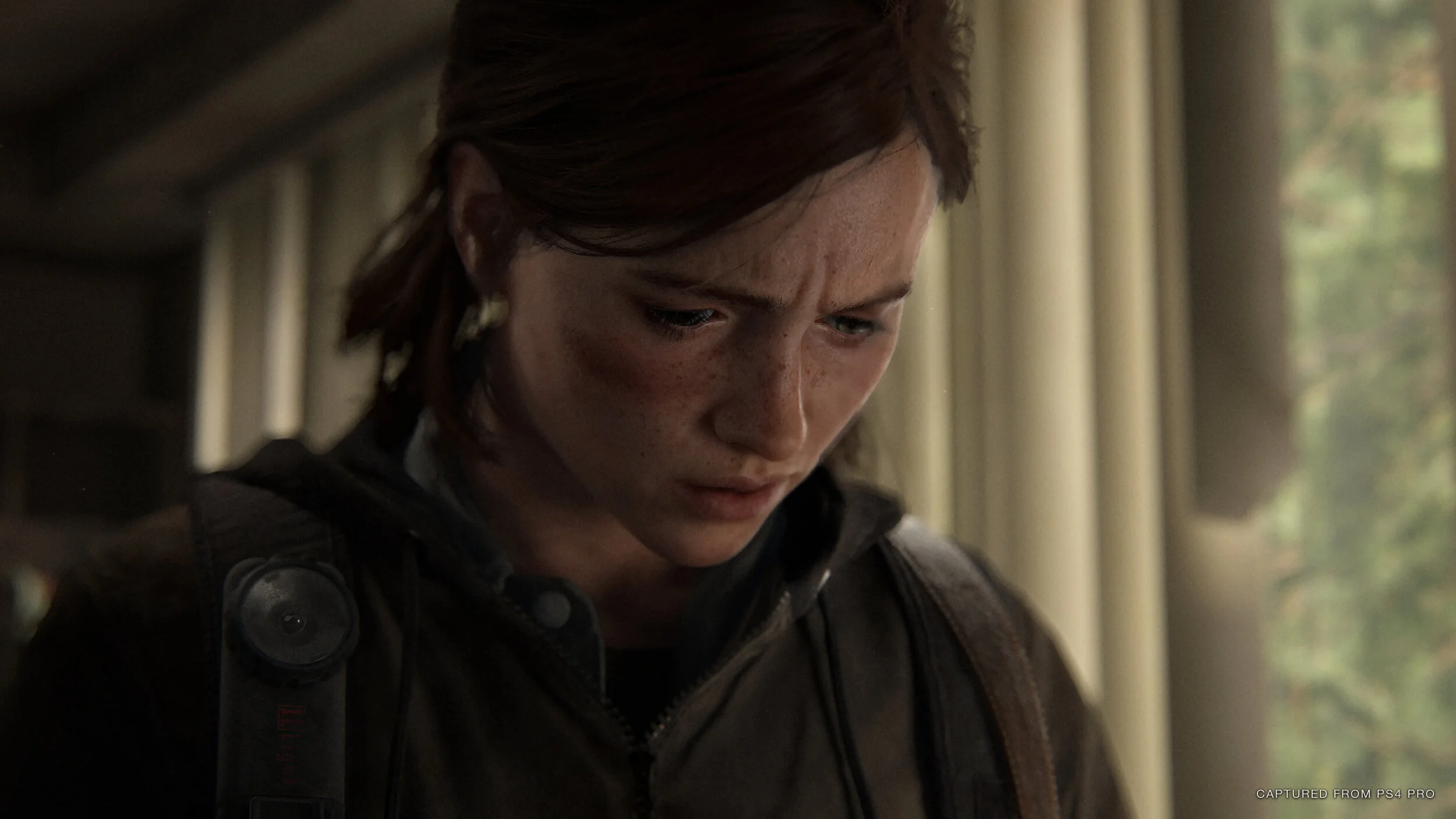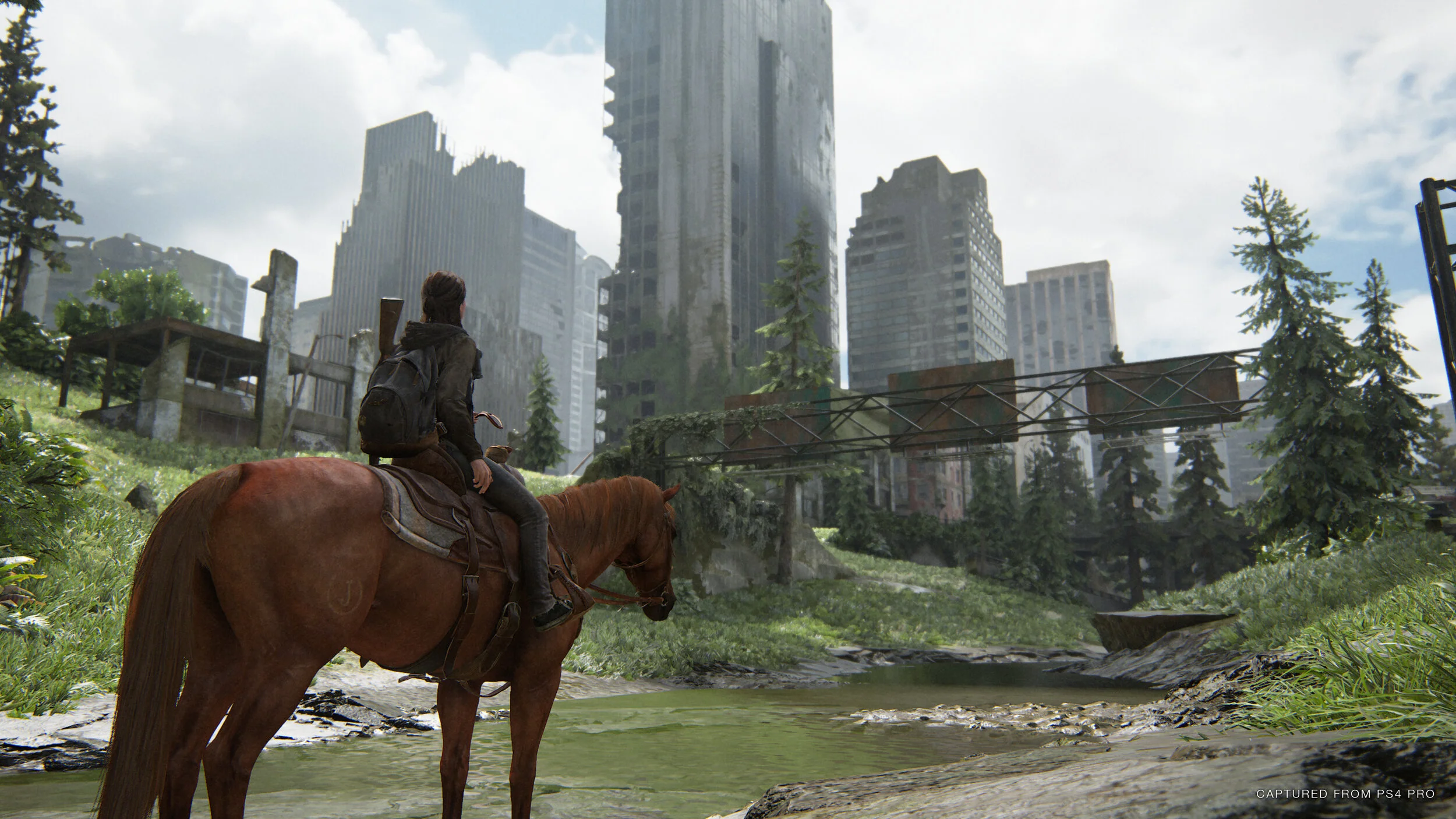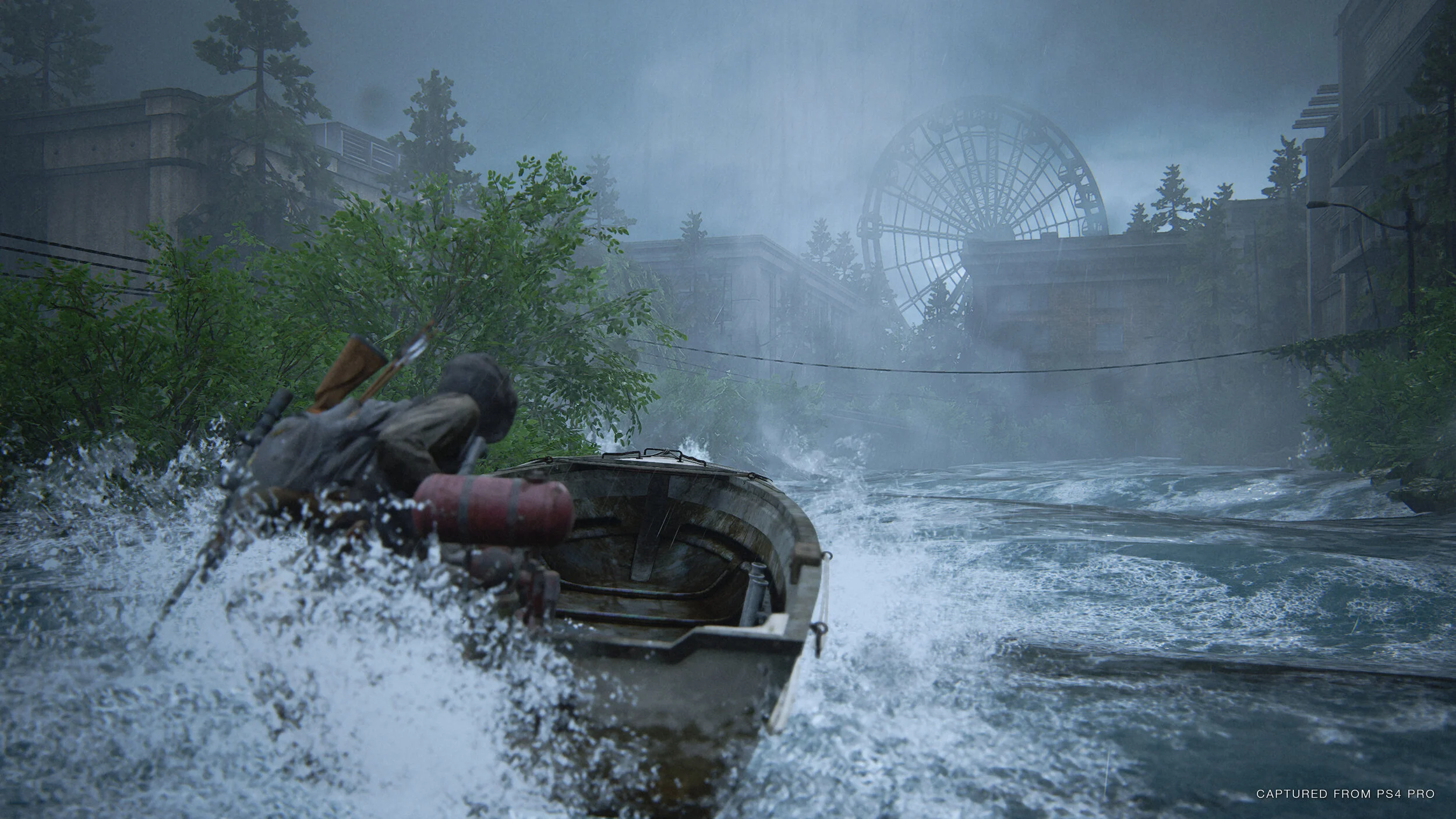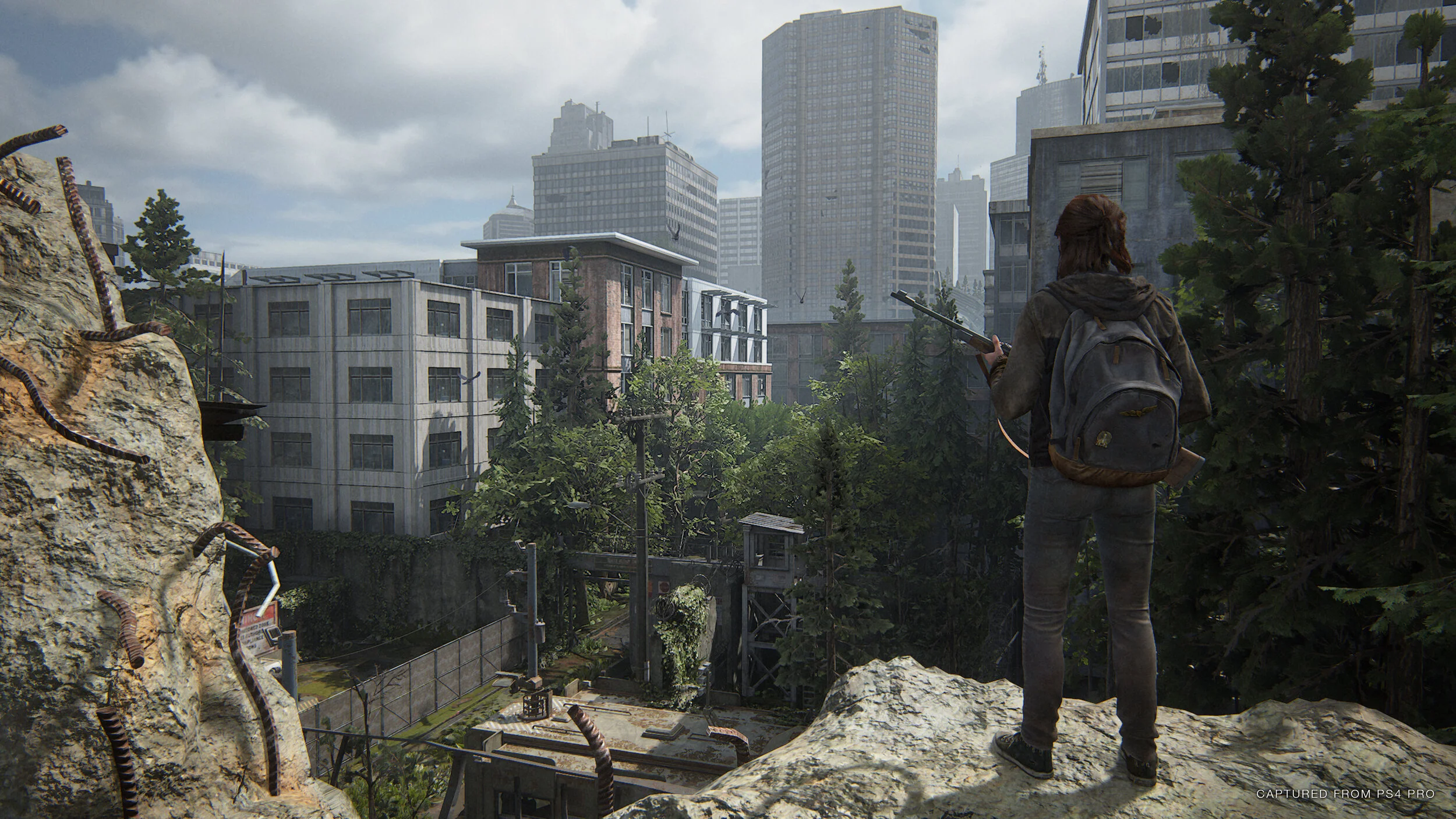The Last of Us Part 2 Review - A Game At War With Itself
It is difficult to analyze or criticize a piece of work like The Last of Us Part 2. It is objectively a massive achievement in AAA video game design that brings the video game medium a level of legitimacy against more traditional forms of art like literature and film. Hundreds of people spent years of their lives, sweating and bleeding into making this experience just for us. All to serve a vision of interactive storytelling.
Yet as the game reaches the top of what this generation of video games can do, it also shows the pitfalls of this AAA approach. The Last of Us Part 2 is in many ways at war with itself. It achieves things that I have never experienced in a video game, but it is so tied to the tonal story, of hate and humanism, that it punishes the player for doing anything that doesn’t follow this strict arch.
A complete video review
The core story, the reason any of us wants to play this game, isn’t served by being a video game. The story is more crafted for a multiple season prestige television show - which is such a shame, since the world building, the characterization, the visceral combat and the art design are so vast and surprisingly interactive.
The dissonance between what the game wants you to do and feel, and what you can do and feel is so overwhelming at times that it undercuts that powerful motivation that brought us all to the table - the continuation of the story of Ellie and Joel. It’s disappointing because the pieces here are just so good - that it makes me question if we need to reconsider what AAA game development can and can’t do.
The Last of Us Part 2 continues the post apocalyptic story of Ellie and Joel, years after their brutal confrontation with the Fireflies both are now established in the small town of Jackson living within the community and setting up roots. Things happen that change that - conflict arises and an older, more grizzled Ellie sets out on a quest for vengeance.
Thanks to Sony Entertainment Canada for the free review code for The Last of Us Part 2
The story is told through multiple perspectives and timelines. All attempting to paint a picture of what it means to live in this new reality. The impact of taking a life and how that one action, even in this brave new world, ripples out and still creates chaos.
In her quest, Ellie rides a horse, a car, a boat - she swims, she climbs - she solves difficult physics based puzzles and most importantly….she kills. Any game that looks to interrogate what it means to murder others but still forces you kill as a basic form of interaction in the game is going to have some of that good ole ludonarrative dissonance. This game takes it a step further by elevating the brutality of Ellie’s murders yet showing the player her confusing sympathy with it. Early on in the game, during a scripted encounter Ellie beats a woman to death with a steel pipe. Afterwards she is visibly traumatized and this trauma leads to more meaningful character interactions for all involved.
By that point during my game play experience, I had literally sliced open the larynx of hundreds of crying men and women who begged me to stop as blood gurgled from their throats. I killed dogs with my bare hands as they whimpered in my arms. This was impact not because the dogs and random enemies now have names (a really trite way of moralizing) but because the violence was so visceral. As the player, we were already traumatized much earlier so when the scripted narrative tries to tell us that Ellie “feels real bad” about this one murder it takes you out of the experience and worse - it makes those story moments feel inauthentic. This is one instance of something that happens again and again.
The scripted narrative works very hard to pose the complicated question “who really are the bad guys?” In this world lacking moral absolutism, those who unconditionally love also are also those who unconditionally hate. The developers do this admirably through multiple character perspectives and timelines - really giving some time to explain how these shades of grey work.
Yet once again - how you play as these characters tells us the answer to these questions very early on. All of them are the bad guys. All of them have brutally murdered (now named) combatants and innocents because the game designers told us to do it. The dissonances once again undermines the core story.
There are ways that could have been helped - allowing a non-violent option for players during combat or at the very least having the scripted narratives reflect the fact I just ripped open the faces of a stadium full of people. This never happens, despite the fact that the combat is just so pitch perfect in its execution.
Stealth combat is reactive and subtle - the tension of second to second choices meaning life or death never leaves you from the first encounter to the last. Combat is the most fun and works best when you mix pure stealth avoidance with goading the enemies to your previous location.
Momentum as a theme, pervades everything you do and the combat is no exception. The exhilaration you feel from sniping out 2 enemies and leading their scared friends to your hidden bomb pile while slitting the throats of those who watch in horror is pretty unmatched in any gaming experience I’ve had. Save maybe - watching incredibly gifted speedrunners go on pitch perfect killing sprees in Dishonoured. Every bullet needs to find its place or you risk death. You constantly scrounge for supplies to craft more and more exotic forms of murder. Everything ultimately though - leaves your enemies in broken piles of meat where their faces used to be.
I talked about momentum earlier and there really is an established pace that the game takes. This is an urgent mission you’re on - and internally it makes a lot of sense. Why would Ellie stop and philosophize on the meaning of life in a broken down bookshop as killers try to elude her. How that affects the world they created and how you interact with it brings back that dissonance.
The environments are a marvel. They have the breadth of massive open world games coupled with the density and focus of walking simulators. Every grassy broken down bodega has hidden loot or (my favourite) a hidden story that makes this shining world a little more clear. Ellie has the ability to traverse like never before (swimming and climbing included) meaning every set piece has verticality and depth. My favourite moments in this game are when Ellie and her companions discover those stories and then want to discuss how it makes them feel.
It makes the player feel like our interactions are authentic and characterizes them more fully because we made the choices, we made the discoveries. But even this - truly rewarding narrative experience is undermined by the core story, the momentum of it. I had to make a choice, dozens of times, to follow a companion who is spewing important exposition, making me go one way or miss out on some important narrative and explore more of the world you put in front of me.
That world is also so much more diverse than ever before - learning about the two major factions newly introduced in the game and how they created this hellscape, along with personal stories of heroism and hate that you discover reinforces those themes of subjective humanism a lot better than the main narrative but I get the sense the game doesn’t want to me cherish these moments and instead wants to shuffle me along so I can put the controller down and watch these (admittedly) breathing taking well acted cutscenes.
Not all of the incidental writing is award winning though - with certain characters in particular shooting off quips more suited for the Big Bang Theory instead of The Road. It does feel like some of the dialogue is just so tonally confusing that it might be ripped from an Uncharted game and not Last of Us. The game is very long and doesn’t give you crutches many players are used to. Things like maps or collectible finders are nowhere to be seen even though the world is vast and full of treasures.
Everything that I’ve talked about, all of these disparate pieces of game - stand alone as world class achievements in game design. The narrative - pushed by cutscenes could be its own HBO show. The combat encounters could and should be their own full fledged multiplayer game and the world building mechanics and exploration is better than many big budget open world titles. Unfortunately not only do these pieces often not fit together, but hurt the story which should be the tool that is supposed to tie everything into one perfect bow.
That’s why this is so disappointing - especially considering the allegations of crunch and a culture of perfection at Naughty Dog. Workers did that here - The Last of Us Part 2 has some of the most “perfect” design elements of any game I’ve experienced but it just doesn’t seem to work like it should for this story.
The original Last of Us was close to perfection because everything was meant to serve the narrative. A powerful, compelling narrative of love and change. The Last of Us Part 2 has that same powerful narrative but now the gaming landscape is different. AAA Games are now expected to do everything exceedingly well for every type of player and sometimes that just doesn’t work as a whole. Despite how incredibly powerful this story ends - it should have been even more so.



